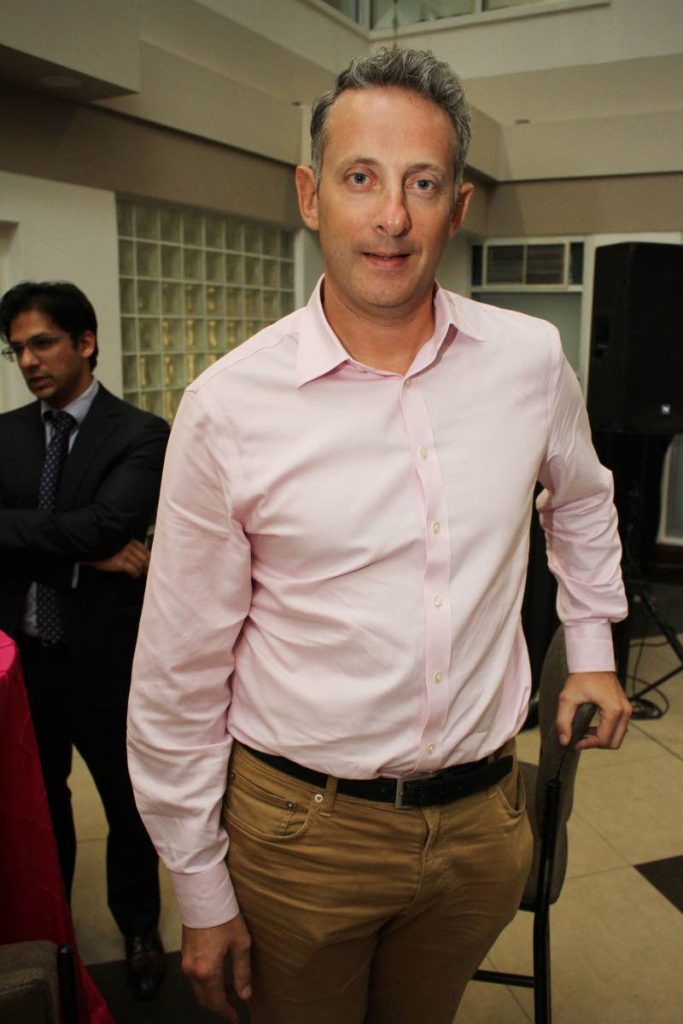Women under 40 don't need mammograms

Women under age 40 should avoid getting mammograms but instead should be aware of breast health and perform regular self exams.
Dr Steven Allen, consulting radiologist with the Pink Hibiscus Breast Health Specialists, and Chair of the Breast Multidisciplinary team at the Royal Marsden Hospital in England made the suggestion on Wednesday night at the Pink Hibiscus breast cancer symposium at the Guardian Group Corporate Centre, Westmoorings. October was breast cancer awareness month.
He said in the UK public health sector, women under 40 are not given mammograms. Instead, they do magnetic resonance imaging (MRI) scans on those with the highest risk due to their genetic profile, family history, lifestyle choices, or other issues. He said in TT there were many more patients under the age of 40 with breast cancer and believed MRIs should be performed when screening.
He said in the UK women were told to go in for screening only if they found a lump. He said at that age the breast tissue tended to be denser so mammograms were less effective because the tissue could hide the cancer. In addition, the breast tissue is radio-sensitive and more likely to be harmed by the low radiation of the mammogram.
He said in the UK patients under 40 with breast cancer is rare but from age 40 the incidents increase considerably. He added that if a woman got breast cancer in her 40s the cancer was usually more aggressive and was “far more likely to kill you.”

- ANGELO_MARCELLE
Therefore, he suggested annual mammograms between the ages of 40 to 50 and women ages 51 to 70, every two years. He said screening for women over 70 was complicated because there were other medical issues in play and they were already dying of other things. However, he said if the person was fit at 70, they should continue screening every two years.
Dr Rajendra Rampaul, oncoplastic surgeon and medical director of Pink Hibiscus added that in TT he found the average breast density to be high, even in older age groups. With higher breast density there was a higher likelihood of cancer so he suggested screenings should be more frequent than once a year after age 40.
According to Allen, some women were put off of mammograms because they may hurt or women may decide they did not want to risk the small amount of radiation. But he said the radiation doses in modern equipment were “inconsequential compared to the chances of it finding something that could save your life.”
Allen has been working with Pink Hibiscus for the past nine months providing second opinions on mammograms. He said the cancers he saw from TT were “much larger” than what he would usually see in London. “Patients don’t trouble the doctor enough, don’t worry about their health enough, they don’t come for screening tests as often as they should so when they come and they have a problem it’s bigger than it should be.”
“One of the challenges I think is awareness of how helpful screening can be. There are some downsides to screening but overall I think as long as women are aware of what those potential downsides are, it’s beneficial and will save lives.”
He said breast screening was criticised by some because some cancers detected were not lethal. He said out of the approximately 38,000 core biopsies done annually at the Royal Marsden, about 50 per cent were cancerous.
He said specialist centres in the UK cater for misdiagnosis. They do not perform mastectomies for smaller lesions. Instead they were managed with observation, and by using an ultrasound-guided technique to remove them under local anaesthetic.
“These are a lot less invasive for women. Therefore misdiagnosis is over-hyped. I think a lot of these things are managed by pragmatic practitioners properly now-a-days and they are not as troublesome as you would think. We do have patients’ best interest at heart after all.”
He stressed that screening was still effective. Citing research from The Swedish Two-County Trial which started in 1977, mortality rates in the years after screening were significantly lower. He added that the results would be even better with the improved technology available today.
In fact, he said in the UK breast cancer incidents were increasing but because they were treated more effectively, less women were dying. “Although our breast cancer incidences are going up, over 51,000 breast cancers in our last assessment in this year, approximately only one-third of women are dying of breast cancer now. Two-thirds are cured partly due to the fact we are detecting them very early. It is also partly due to our clever surgeons and oncologists who are very specialised and are able to treat more effectively when they get the cancers presented to them.”
Another criticism was the possible harms of screening. Overuse of mammograms could cause low and intermediate grade ductal carcinoma in situ (DCIS) which are abnormal cells inside a milk duct in the breast. It could also cause lower grade invasive breast cancer, and borderline lesions.
However, Allen said DCIS could not be detected before screening and high-grade DCIS usually progressed to become a high-grade cancer in a relatively short time period, so screening was still beneficial.


Comments
"Women under 40 don’t need mammograms"